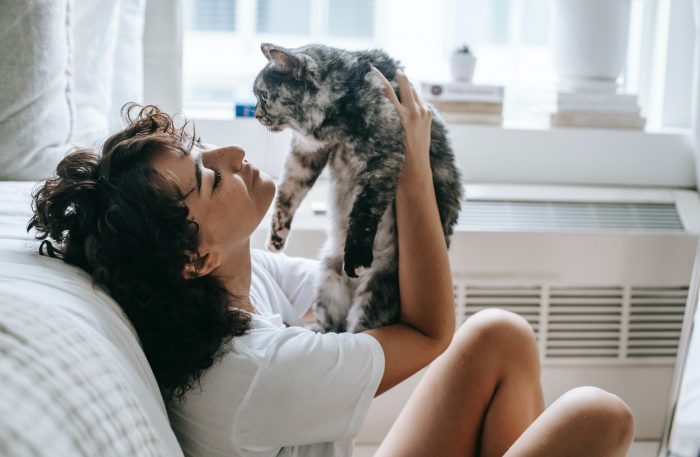In 2009, I decided to go a year without spending.
And, much like the pandemic of 2020, it involved a whole lot of doing nothing and going nowhere.
Nevertheless, it ended up being one of the best years of my life, and it left me well equipped to resiliently handle almost two years of unemployment as well as other life circumstances similar to those induced by the pandemic that we’re all experiencing now.
First, I’ll start with the why, what, and how—because why would any sane person choose to go a year without spending money?
It was at the end of 2008 when I made this decision. Part of my “why” was to have compassion for so many of my friends experiencing the economic hard times that became a circumstance for many that year. In solidarity, I wanted to commit to the experience of what it might be like to forgo luxuries for awhile.
Another reason I wanted to cut my spending for a year was to cultivate a mindful practice regarding my choices with money. I felt like so much of my spending was automatic and habitual. And because my spending habits were not intentionally aligned with my values, I was feeling unfulfilled around my money goals and manifestations.
So, I decided to give myself the challenge to not spend beyond basic necessities for the next year. I called it my ‘Not Buying It’ challenge. Keep in mind that this was my own challenge that I made up, so I was also forced to define what was really a necessity.
Restrict your spending and you’ll notice how fast your brain turns everything into a necessity at warp speed.
We experience this effect when we suddenly go on a diet as well. This is also one of the reasons so many of us struggle with a budget.
I was married at the time and chose to consider my partner who had no interest in this challenge. So, I did stay in my house and continued to pay the mortgage and utilities. Beyond that, the guideline was to not spend money on anything that wasn’t a necessity. I didn’t get my hair colored, buy new clothes, see a movie in a theatre, or even get a cup of coffee out with friends that year. (Sounds a lot like 2020, right?)
Well, it ended up being one of the best years of my life.
Below are the top 10 things I learned:
1. I learned to be more resourceful and creative.
Before my challenge, I used to take those random trips to the grocery store to accommodate my sweet tooth or otherwise. Since that would not be happening anymore, I found that menu planning saved about 25 percent in costs. Plus, nixing the ad hoc trips to the store saved even more.
I also became more resourceful and creative by choosing to invent meals based on what I had on hand and using stuff up before it went bad. I loved the surprise discovery of just trying and mixing new things together. This resourcefulness spilled into other areas of my life, and I became more confident. Most of us think money is our resource for everything. We think it is the way to get more of what we need or want. In fact, it’s the exact opposite. Hone in on your creativity and resourcefulness, and you will create opportunities for more money. I started to develop an inner trust and security.
2. I learned to manage the emotion of desire and get aligned with my values.
The wants were loud in the absence of my impulse to buy, and I learned that when everything is important, nothing is important. I came up with a strategy to quiet the wants. I made a rolling list of everything I wanted. A want list. I gave myself permission to buy it all when the challenge was done. Only, when the challenge was done, I didn’t want any of it anymore.
I wasn’t saying “no” or “not ever” to myself. I was just saying, “not now.” It quieted the wants, and I got to discover what was really important to me. Going forward, I knew I was buying something because I really valued it! Knowing what I really valued also eliminated the residual guilt of buying because I wasn’t clear on my reasons. This world is fast and loud. Everywhere you turn, people are telling you what to do and how to be. I got to create space to discover what my heart really wants. Why do I want it? Do I like my reason? Magic happens when your heart’s intentions are behind your actions with money.
3. I learned to break away from the herd mentality.
Fear of missing out (FOMO) can be so pervasive and complex. If you’re not mindful of it, it will run your money show. It’s a tribal fear, and we are a tribal species always searching for our place of belonging.
Without a knee-jerk reaction to spending, I could see how often I bought into things just because everyone else was doing it, and I thought I should too. Right down to the simple, everyone’s going to happy hour, and I don’t want to be left out. Or, we’re all doing a Starbuck’s run. It sounds so innocent, but mindlessly spending $5-$30 a day adds up to a lot of lost money on unfulfilling choices.
Of course, maybe you recognize that that coffee or happy hour is your joy. If so, spend away! The purpose of “not buying it” was to create intentional awareness and spend on purpose.
I also discovered that I do like to plan for some impulse spending that allows me to make choices in the moment and go with the flow. Only, now, there is a monthly allowance for it, so it doesn’t run my entire life.
4. I discovered the joy of constraint.
Every decision we make is like a debit to our energy account. I discovered the paradox that constraint is freedom and less is more. Less spending resulted in a simpler lifestyle.
Think of how much brain energy goes into buying concert tickets, household appliances, planning vacations, parties, and birthday gifts, and you’ll notice an enormous amount of time and brain energy spent towards buying things and the decisions that go into these purchases. Given the paradox of choice, I felt a considerable amount of relief to not have to make so many decisions. That’s the beauty of a budget. It actually enables you to make the decision for yourself ahead of time in order to relieve yourself of decision fatigue.
5 & 6. I enjoyed more time and free stuff.
I enjoyed a slower pace in my life. It’s amazing how much time and space came into my life that year. Scheduling a lot of activities to spend your money leads to a lot of driving time, planning activities, scrolling online, and also waiting in lines. For free, I enjoyed cozy meals at home, walks in nature, friends, and coffee in my comfortable living room with a cat on my lap, free library books, movies, museums, fireworks, and more.
Joyful simplicities are abundant, and my life slowed down to a blissful pace.
7. Money doesn’t solve human emotions.
That year, I lost one of my most beloved pets. I had a sad moment when I wanted to let myself out of my challenge to buy a $14.99 memento. Surely, I could make an exception for a broken heart. Only, by practicing the mindful pause, I realized that spending $14.99 was not going to fix the hurt.
I was so angry by this realization. It felt like life was so unfair. If spending the money wasn’t going to fix my broken heart, then what was the point of spending it?
No matter how good it gets, this human life still involves pain and sadness, and no amount of money can fix the issue of being human. In the absence of my impulse to spend, I processed my grief instead. It was not as unbearable as I feared. The worst thing that happened was the feeling. At the very depth of my grief was a golden nugget of healing and the place where I discovered the vast beauty in the contrast of our human emotions. So many of us use money to numb our feelings, and we are depriving ourselves of a rich human experience.
8. I learned to value myself.
Practicing the big pause on opening my wallet all year gave me lots of space for discernment and choice. I was able to notice that I constantly felt guilty for wanting to spend money on myself. Paradoxically, when we deprive ourselves of loving self-care, we often act out in defiance. We end up overspending only to perpetuate our guilt and justify why we should feel guilty for spending money on ourselves in the first place.
So many of us have issues with money because we use it as a tool to punish and deprive ourselves.
I was able to observe the ways in which I do that. That year, I was grateful to learn and discern that loving self-care is a priority for me. And, I deserve to treat myself to luxuries. Money goes to those who value themselves. Plain and simple. Believe you are worthy of love, care, and attention.
9. Addiction to comfort and convenience are real things.
Nothing’s wrong here. Our brains love to seek pleasure, avoid pain, and use the least amount of effort possible. If our brains got their way all the time, we’d lay on the couch watching Netflix while eating loads of sugar and fat every day all day. Our brains love to be in a state of comfort using a minimal amount of energy while gathering hits of dopamine. I began to see all the ways in which it felt like my brain was sabotaging my bigger and better plans.
I was letting my brain choose easy over having money. That year, the big pause showed me that discomfort is the price of your dreams. I learned to be uncomfortable on purpose for a greater purpose. And, I learned to consciously choose my conveniences as time is a valuable asset.
10. It’s not the big stuff that breaks us.
Without spending automatically, I got to notice that I was saving $300-$500/month. I used a strategy of constraint which involves mindful choices and discernment. The energy differs from restriction and deprivation, and the outcome will reflect that. How you feel when you do things matters more than the how.
Before my challenge, I monitored my spending with a critical eye, but I didn’t exactly follow a budget with any goal or intention in mind. Seriously…how fun would it be to be with a partner who constantly monitored your behavior with a critical eye instead of working together to create a meaningful and joyful goal?
My money and I did not have a very harmonious relationship. However, I made space for the big things like my house and car payments. I didn’t seem to struggle with the money to pay for some of those so-called necessities, so it never really occurred to me that there was a problem with my money.
This whole process brought up some of my limiting beliefs that lead to my automatic spending habits. Coming from a background of money scarcity and struggle, I started to notice that some of my money habits stemmed from never really believing that I deserved more. I would so easily grab at the small immediate satisfaction and settle for that because deep down, I didn’t believe there’d be anything more for me later.
All in all, it was the year that nothing happened and everything changed.
~









Read 17 comments and reply